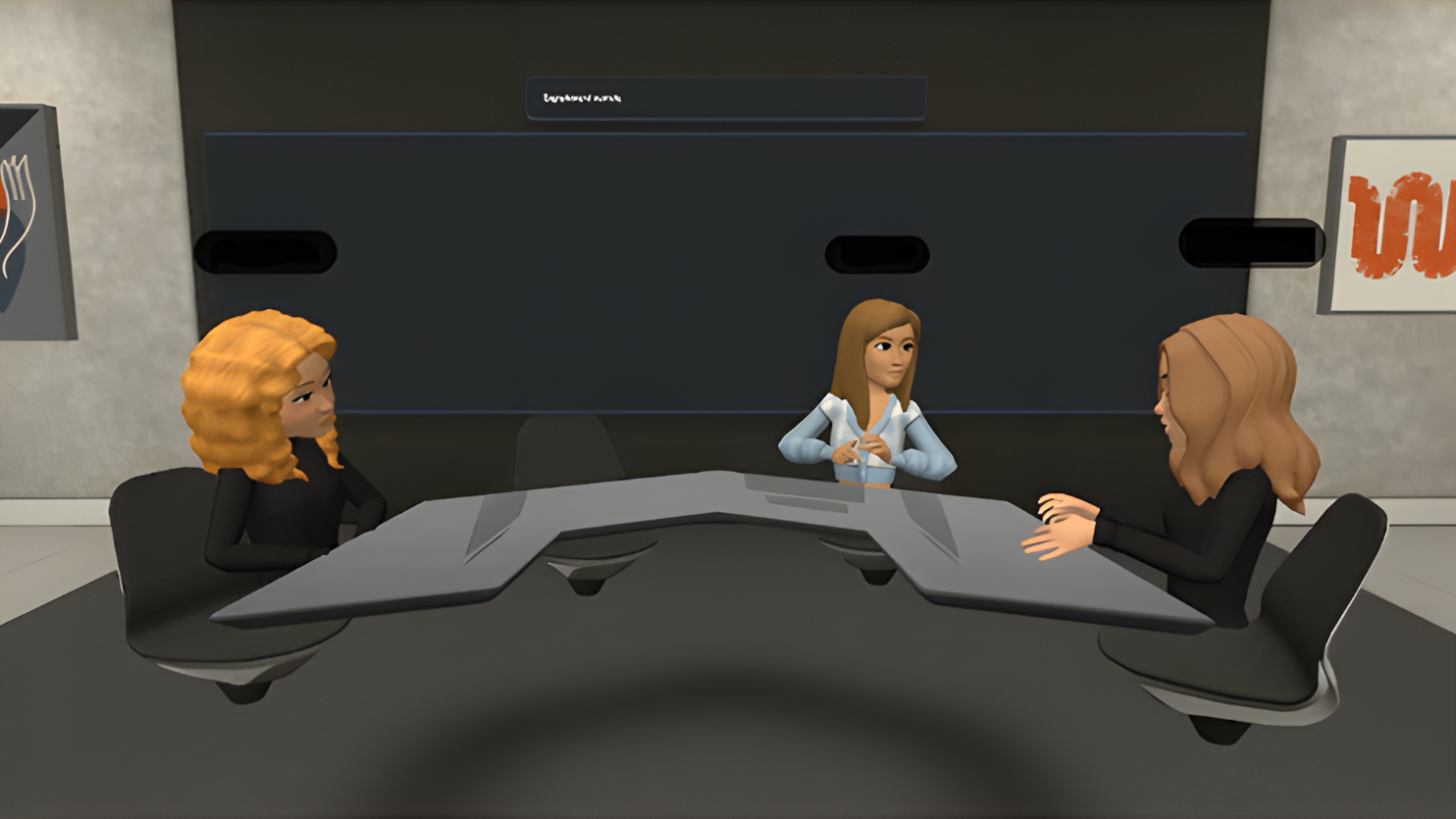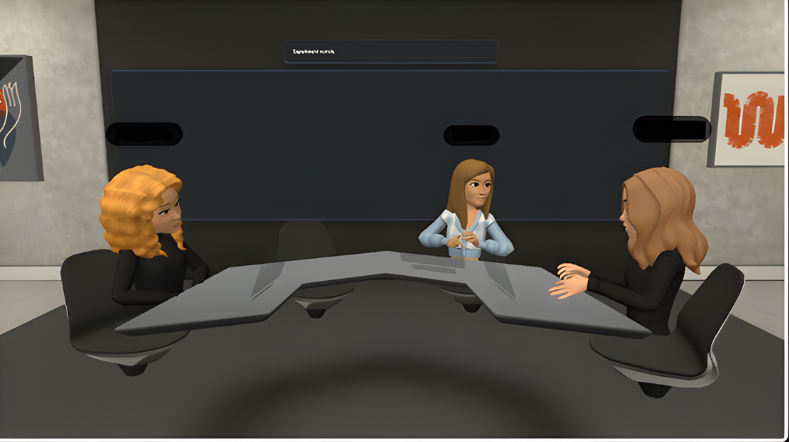
What role will VR and immersive technologies play in the future of work?
A few years ago, the metaverse seemed like a far-off ambition. But as immersive technologies improve, applications for work, education and industry are emerging. What can immersive technologies like Virtual Reality (VR) contribute to the workplace? Gjalt Loots, Senior Project Manager, TNO ICT Strategy & Policy (ISP), describes the potential uncovered during a recent study.
Accelerated development
During the Covid pandemic, more people worked remotely than ever before. It was a necessity then, but is becoming a workplace norm today. Those who work remotely – at least some of the time – have a lower carbon footprint and report better work/life balance. And today, video conferencing is an integral part of the way we work and collaborate.
But what about the future of work? Those who spend a significant amount of time on video conferencing systems report a feeling of isolation, and higher levels of fatigue, stress and disconnection from peers.
Can eXtended Reality (XR) technologies like VR and Augmented Reality (AR) help eliminate some of these negative side-effects, reduce feelings of distance, and yet optimise the benefits of remote working? And are people truly willing to explore XR technologies in their work environment?
Exploring the metaverse at TNO
XR technologies are certainly nothing new for us. Our teams have been studying various aspects of the technology for years. Today, we contribute to the metaverse with our own virtual enterprise environment, on which clients and partners can test and explore their options.
We are also developing options to eliminate the need for head-mounted devices (HMDs) commonly used for XR experiences, and even developed a Virtual Visits social AR system for the elderly.
As TNO, we’re also working on holographic human representation technologies to replace cartoon-like avatars currently used in the systems. ‘It’s quite amazing how far XR technologies have already come, but there is still a lot of work to do. We work closely with clients and partners to unlock all the potential this technology has to offer,’ Gjalt Loots, Senior Project Manager at TNO ICT Strategy & Policy (ISP), explains.

'TNO has all the expertise in place to tackle all the challenges of XR in a multidisciplinary way.'
Gjalt says that TNO is uniquely qualified to explore XR to the fullest. ‘XR is so much more than just advanced technology. Alongside our work in that domain, we have experts at TNO working on other crucial aspects, like privacy, social context, health, and human acceptance of the technology. Without those elements, XR technologies won’t get very far.’
For TNO, Gjalt explains, exploration of XR is not about jumping on the hype bandwagon, but ensuring XR provides true societal benefit. ‘TNO’s tech innovations are all about contributing to a better world,’ he says.
‘XR will have a significant footprint and impact on society, and we want to ensure we stay closely involved. Not only to address the many regulatory, data protection, and user preference challenges still ahead, but also to explore and enable the most promising applications of the technology for our diverse community of clients and partners. If they’re interested in the tech, we’re interested in helping them explore it for their specific business needs.’

Remote work, human touch thanks to XR
In an Early Research Programme on Social XR, initiated in 2018, we began developing XR solutions for remote communication and collaboration. Human acceptance of Social XR in various applications was a main research line in that programme.
In 2022, this research became subject of a targeted study funded by an unrestricted research grant from Meta. In the study, we as TNO set up both quantitative and qualitative experiments aimed at uncovering whether XR could be an accepted way to conduct business meetings.
‘We wanted to know what the future of work looks like, and what role XR might play in it. Does it help or hinder negotiations? Do people remain engaged or do they get distracted? We set up a series of experiments to find out, by having participants conduct face-to-face (F2F), video conferencing (VC) and XR meetings,’ he explains. ‘The results were evaluated both on the completion of the intended tasks and on user satisfaction.’
'In a video conference call, participants often check their mail, do other tasks or allow other distractions. With XR, both focus and concentration are increased.'
The result? The setting of the meeting – whether online, virtual or in person – had no effect on the efficacy of the meeting. Tasks were completed and negotiations settled in all three settings.
However, participants reported higher levels of engagement and satisfaction with XR meetings as opposed to video conferencing. And they even enjoyed them more than face-to-face. ‘The technology is still new and interesting, so people were eager to try it out. With the current cost of XR technologies, it remains inaccessible to the majority of people and companies. So, participants jumped at the chance to try it for themselves’, Gjalt states.
Conclusions and next steps
The results of the replicable study were consistent and statistically relevant. Across both the quantitative and qualitative studies, participants had a positive overall experience and effective meetings.
However, Gjalt explains that there’s much more work to be done. ‘We of course need to continue to develop the technology to increase the capacity and reduce the costs, thereby making it more accessible to more people,’ he says.
‘But, as in everything we do at TNO, we are carefully considering the societal impact of the technology. That means diving deeply into how to ensure a responsible, safe, and accessible metaverse.
We engage with stakeholders on every level and actively participate in local, national and international networks to both share our knowledge and gain new insights. If the metaverse is to be used to drive business and society forward, we want to ensure that it is secure, inclusive and effective across the board.’
Gjalt also adds that the study was as independent and objective as all of TNO’s other work. ‘Meta saw the value of our ongoing research into the benefits of Social XR in the future workplace. But they were not involved in our execution, and had no influence on our findings.
TNO is an independent and trusted research partner. And, as competition in the XR domain continues to grow, will continue to be a source of trusted, impartial, and scientifically relevant insights into the key questions of our time.’
Want to read more about the results of the study?
Get inspired
Meeting in virtual environment increases engagement and concentration


Discover hybrid working 2.0: virtual meetings in the metaverse


TNO receives Research Grant from Meta for Social eXtended Reality (XR) study


How Social XR (eXtended reality) reduces distances

The societal need for Social Extended Reality (XR)



